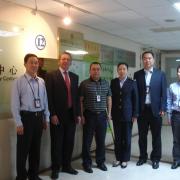
The IQTC is a government organisation which depends on the General Administration for Quality Supervision, Inspection and Quarantine (AQSIQ) of the Chinese government. This technology center is responsible in particular for ensuring the compliance of imported products and especially wines.
Dr. Ruf, who had already welcomed representatives from this organisation to the OIV in September 2012, presented the OIV's missions and activities in the field of oenological practices and methods of analysis to the IQTC delegation led by its Director, Dr. Zheng Jianguo.
The discussions were particularly focused on the impact of the OIV standards on global vitiviniculture, especially with regards methods of analysis. The IQTC delegation highlighted its interest in implementing analyses on the quality and authentication of wines.
The IQTC representatives also emphasised their interest in the OIV's work and offered to provide a Chinese translation of the OIV methods of analysis. Finally, both parties agreed to continue with the exchange of information between the two organisations.

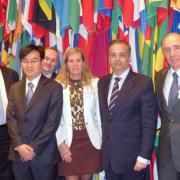
Dr Liu Qing, representing the Guangdong CIQ and the Vice-Director of the NSCFFI, Dr Zhong Qiding took an active part, particularly in the works of the Methods of Analysis Sub-commission. The works and standards of the OIV in the field of analysis and control are followed particularly closely in China and are the basis for the main Chinese standards for analysis.
This collaboration was even extended to these laboratories participating in inter-laboratory trials to validate the OIV methods.
It should be pointed out that even though the People's Republic of China is not an OIV Member State, collaborations undertaken with key Chinese institutions are providing a valuable insight into the work of the OIV along with its expertise and its recognition on vitivinicultural issues.
The IQTC and NSCFFI representatives stressed their interest in the OIV's work and the need for the exchange of information to continue.
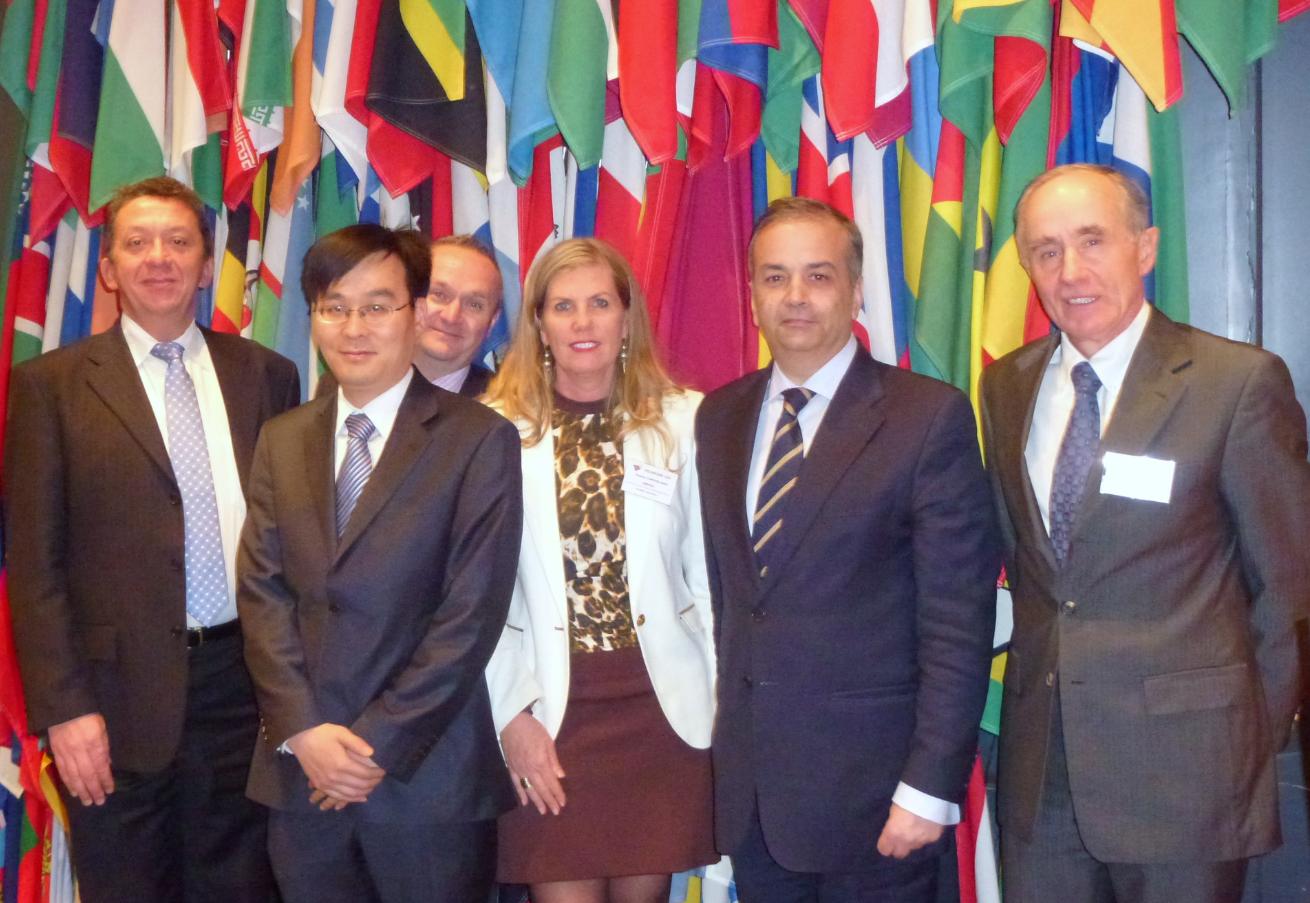
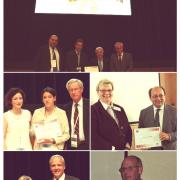
In July, Claudia Quini, the then President of the OIV, gave an award to Dr Karl-Heins Wilms (picture: Michael Koehler received the award on behalf of Dr Karl-Heins Wilms), who has devoted his professional activity to the wine sector for more than 20 years as the Head of the German delegation of the OIV. She highlighted the exemplary nature of the German participation in the OIV which, in this period, has hosted two world congresses and had two presidents of the Organisation.
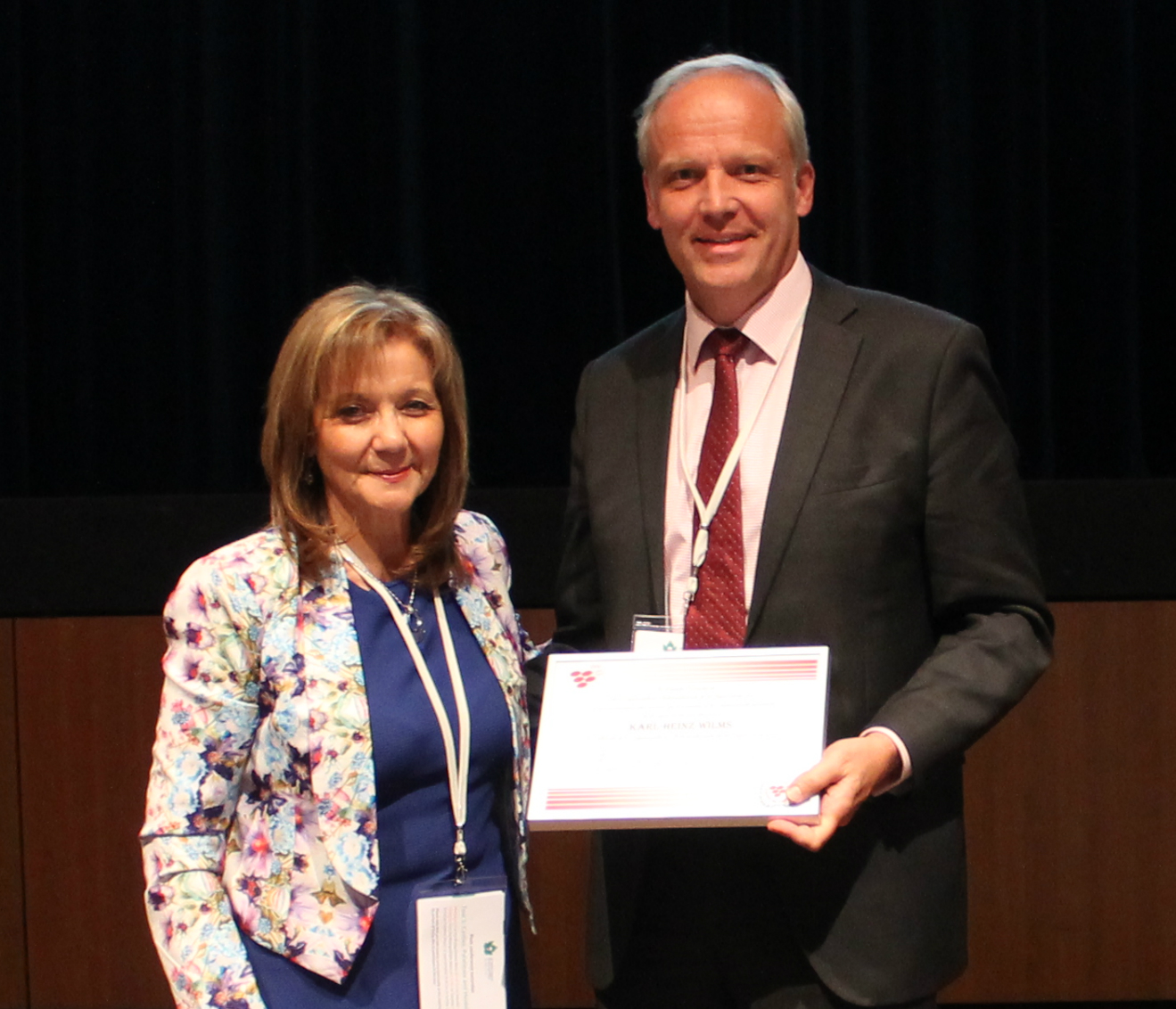
Mr Yves Bénard, Vice-President of the OIV, paid tribute, posthumously, to his Italian oenologist colleague, Professor Roberto Ferrarini. He was the Director of Research and Director of the departments of Development and University Research; a professor on the viticultural and oenological sciences course at the University of Verona and a member of the Italian Academy of Vine and Wine; as well as a member of the Italian OIV delegation on behalf of the Ministry of Agriculture, notably as part of the "Oenology" Commission and the "Technology" Expert Group.
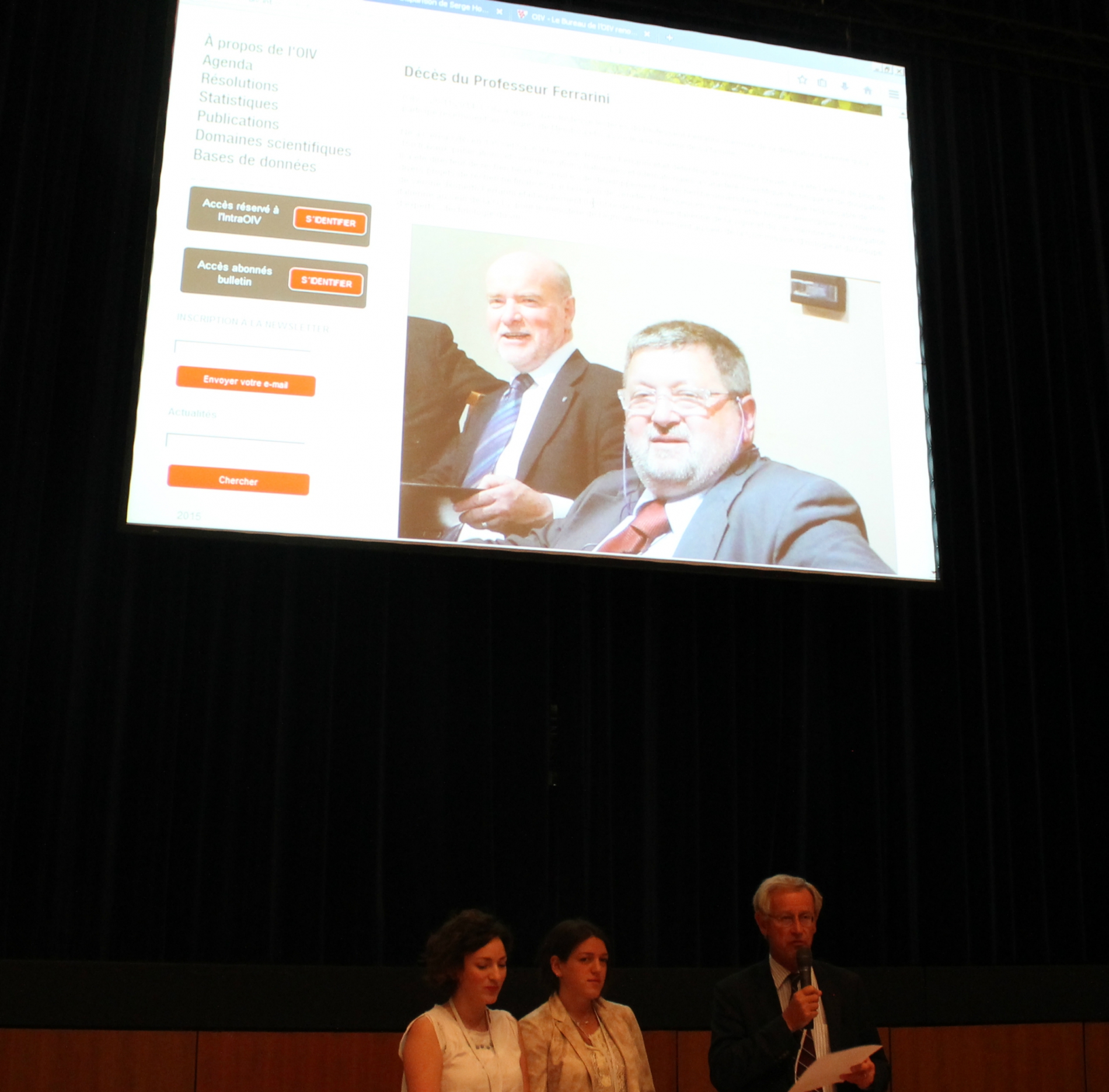
Mr Jean-Marie Aurand, Director General of the OIV, gave a posthumous award to Mr Serge Hochar, who was involved in OIV activities for 20 years and was a major player in the renovation and development of Lebanon's wine sector. He was one of the architects of Lebanon's wine legislation established in 2000, Founder and President of the Union Vinicole du Liban and, more recently, President of the National Institute of Vine and Wine. He successfully positioned Lebanese wines on the international stage, a tireless ambassador dedicated to his passion and vision for his country's viticulture.
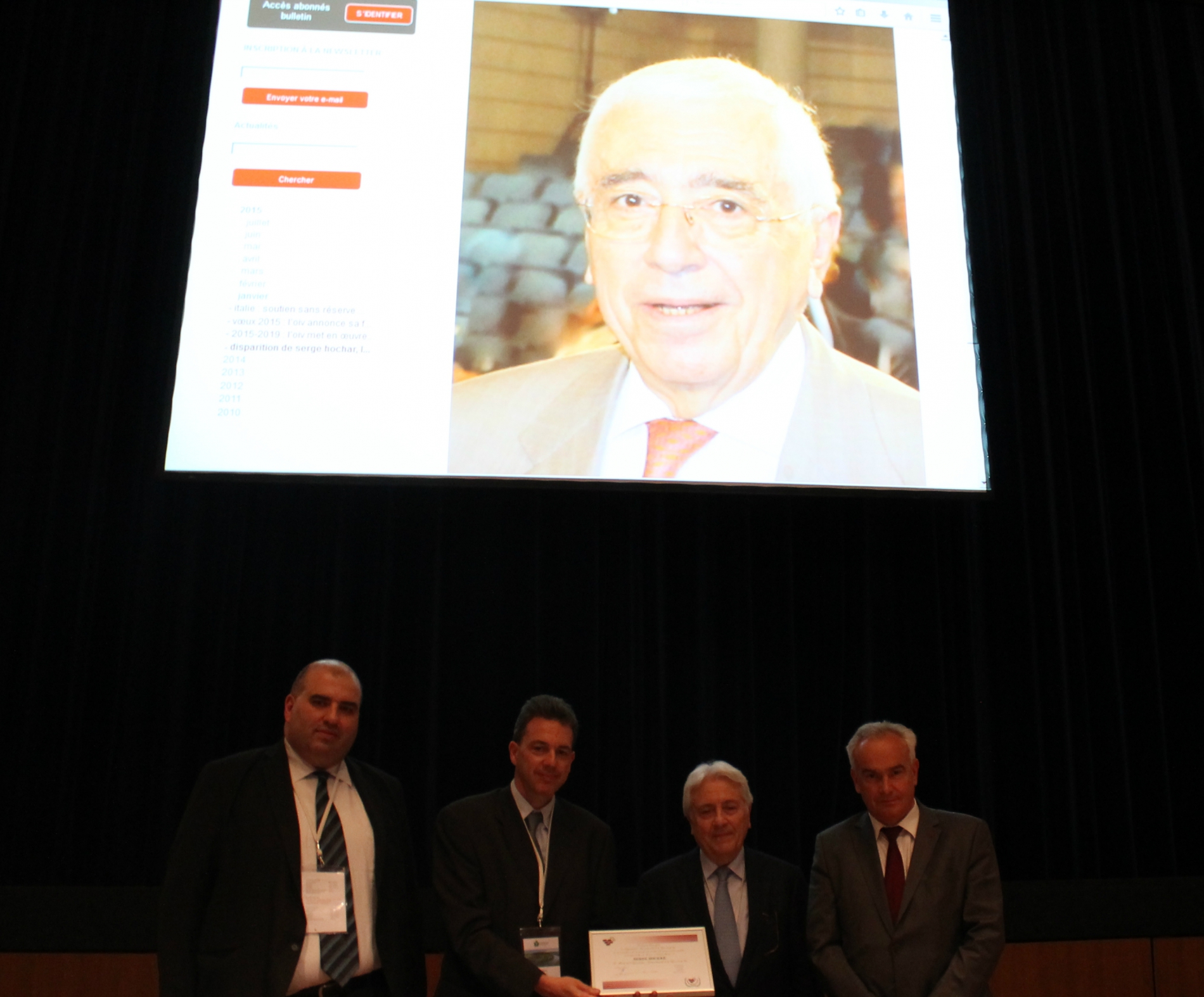
In October, the President of the OIV, Monika Christmann, presented the OIV Merit Award to Jean-Luc Dairien, currently the Director General of the French National Institute of origin and quality (INAO). She stressed Mr Dairien's contribution to the vitivinicultural sector both at the national level in his work as the ONIVINS Director as well as in his devotion to the OIV's “Economy and Law” Commission for ten years as its Scientific Secretary and President.
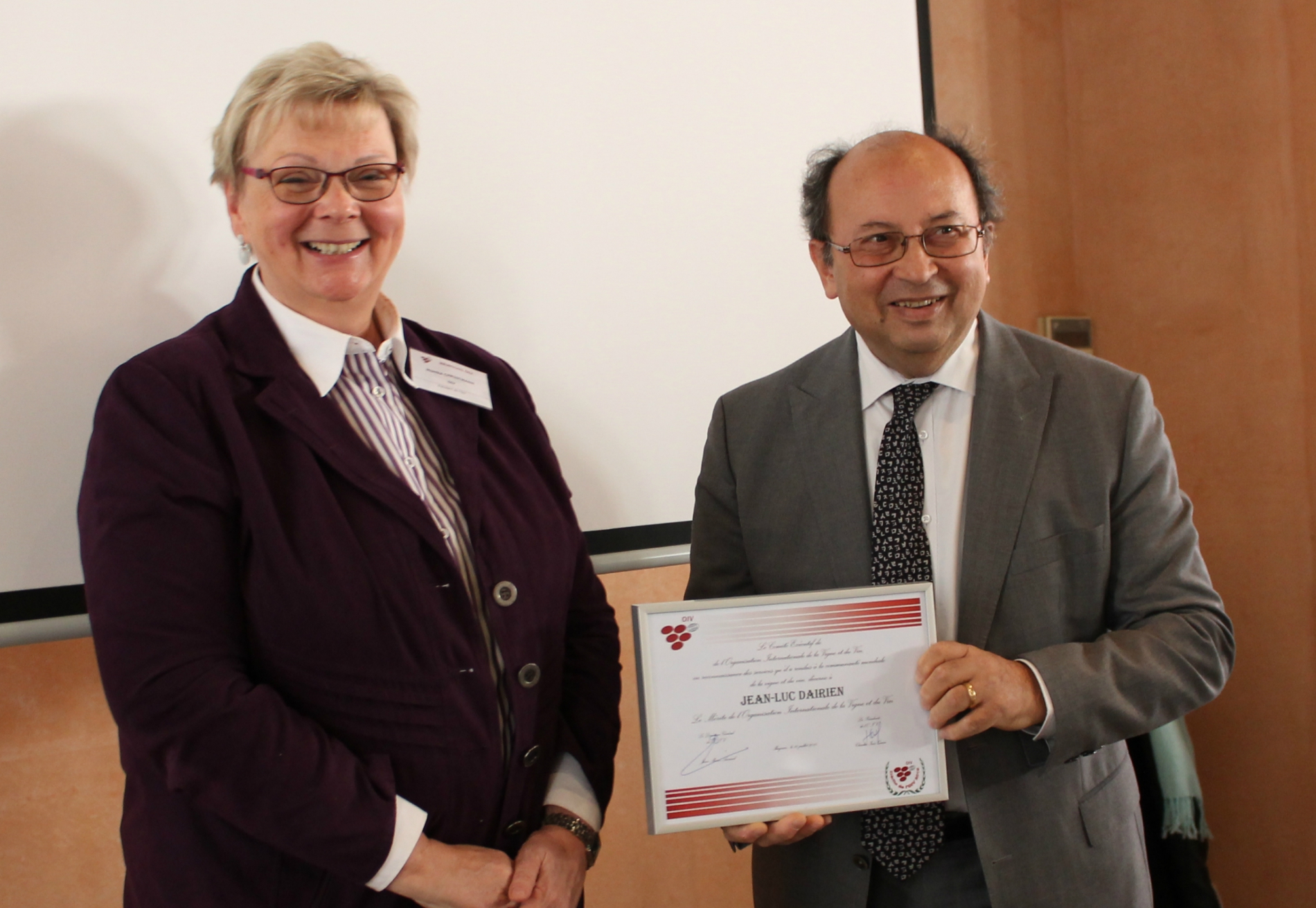
Finally, the OIV also granted its Merit Award to James Finkle, who died in September 2015 before receiving this recognition. He chaired the International Federation of Wines and Spirits (FIVS) for nearly 17 years. Under his leadership, the Federation has become the representative of the wine sector, particularly as an active observer with the OIV or Codex Alimentarius. The OIV pays tribute to the memory of a passionate man who devoted himself to the development of vitivinicultural activity around the world.
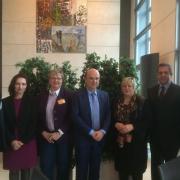
They also met with the German Federal Minister for Food and Agriculture, Christian Schmidt. Monika Christmann and Jean-Marie Aurand had several meetings with the Ministers and representatives for the OIV Member States present in Berlin.
During a breakfast in the parliament building at the initiative of Ms Kordula Kovac, member of the German Bundestag (national parliament) and also President of the "Wine Group", the OIV President and Director General met with Mr Edmond Panariti, Albanian Minister for Agriculture. The Minister showed a keen interest in the OIV and its missions at a time when Albania wishes to revive its wine production and modernise the sector.
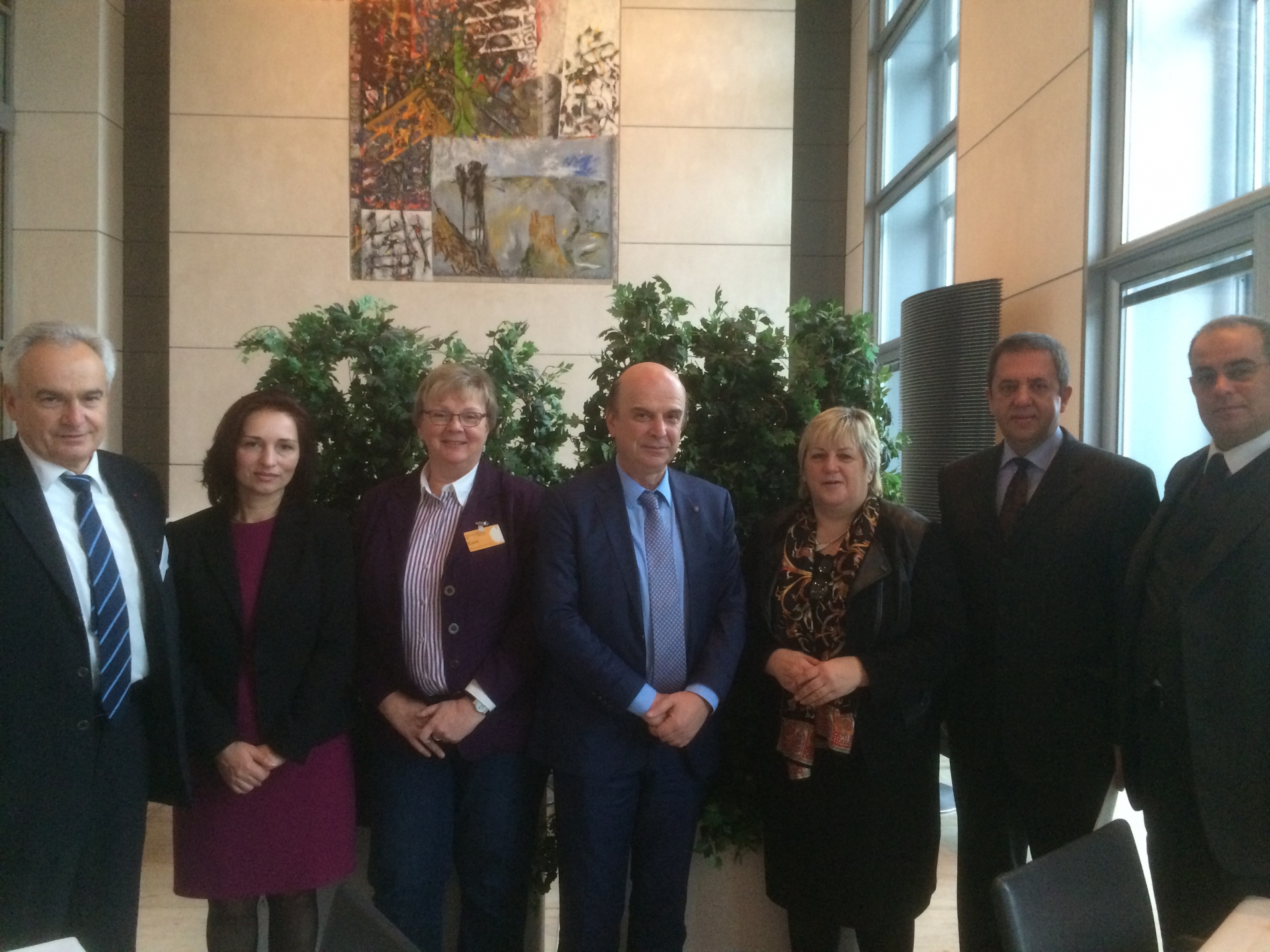
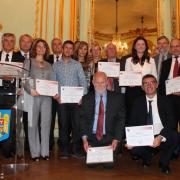
The increase in the number of works presented to the OIV Award Jury is related not only to the growth in worldwide literature about vine and wine by many authors, but also the significant international recognition of the OIV Awards : a benchmark in a sector which continues to grow and develop.
For information on the Award Jury and the OIV Awards : Download the document
- What does the Award presented by the Award Jury provide?
- What are the categories specified by the Award Jury?
- What are the terms and conditions for submitting a work?
http://www.oiv.int/en/international-organisation-vine-and-wine/oiv-awards, contact jurydesprix@oiv.int
Registration until 28 February each year: submission form to download